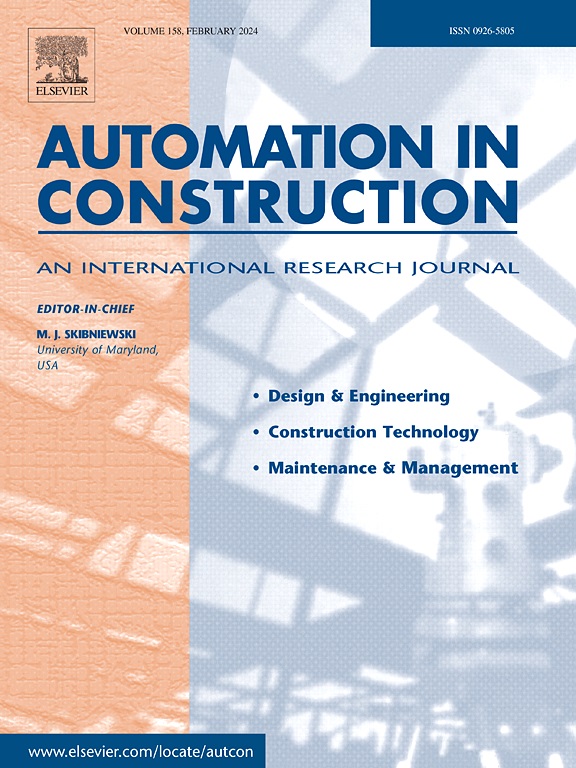利用多通道动态和静态物体分离快速重建三维场地
IF 11.5
1区 工程技术
Q1 CONSTRUCTION & BUILDING TECHNOLOGY
引用次数: 0
摘要
三维(3D)模型具有可视化、精确性和交互式信息展示的特点,可有效促进整个施工过程中的协作和优化管理。然而,现有的三维重建方法往往无法同时满足现场适用性和快速性能的要求。为解决这一难题,本文提出了一种基于单目相机的三维重建方法,该方法专为现场应用而设计,并引入了动静分离技术,以减轻计算负担,加快处理速度。这种方法可以预先建立静态和动态物体的三维模型。物体的定位、姿态和方位信息可从多个通道快速集成,以实现快速三维现场重建。实验结果表明,目标物体可以通过多个通道识别,并快速集成到三维模型中。本文通过使用单目摄像机实现建筑工地的三维重建,提高了项目安全管理水平,并支持数字孪生的实施,从而为理论和实践做出了贡献。本文章由计算机程序翻译,如有差异,请以英文原文为准。
Fast 3D site reconstruction using multichannel dynamic and static object separation
Three-dimensional (3D) models, characterized by their visualization, accuracy, and interactive information presentation, effectively facilitate collaboration and optimize management throughout the construction process. However, existing 3D reconstruction methods frequently fail to simultaneously satisfy the requirements for onsite applicability and fast performance. To address this challenge, this paper proposes a monocular camera-based 3D reconstruction method designed for onsite applicability and introduces dynamic–static separation to reduce the computational burden for faster processing. This approach enables the preestablishment of 3D models for static and dynamic objects. The positioning, pose, and orientation information of objects can be quickly integrated from multiple channels for fast 3D site reconstruction. Experimental results demonstrate that target objects can be identified across multiple channels and quickly integrated into 3D models. This paper offers both theoretical and practical contributions by enabling 3D reconstruction of construction sites using monocular cameras, which enhances project safety management and supports the implementation of digital twins.
求助全文
通过发布文献求助,成功后即可免费获取论文全文。
去求助
来源期刊

Automation in Construction
工程技术-工程:土木
CiteScore
19.20
自引率
16.50%
发文量
563
审稿时长
8.5 months
期刊介绍:
Automation in Construction is an international journal that focuses on publishing original research papers related to the use of Information Technologies in various aspects of the construction industry. The journal covers topics such as design, engineering, construction technologies, and the maintenance and management of constructed facilities.
The scope of Automation in Construction is extensive and covers all stages of the construction life cycle. This includes initial planning and design, construction of the facility, operation and maintenance, as well as the eventual dismantling and recycling of buildings and engineering structures.
 求助内容:
求助内容: 应助结果提醒方式:
应助结果提醒方式:


